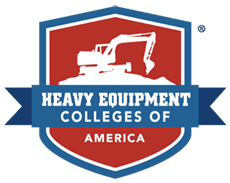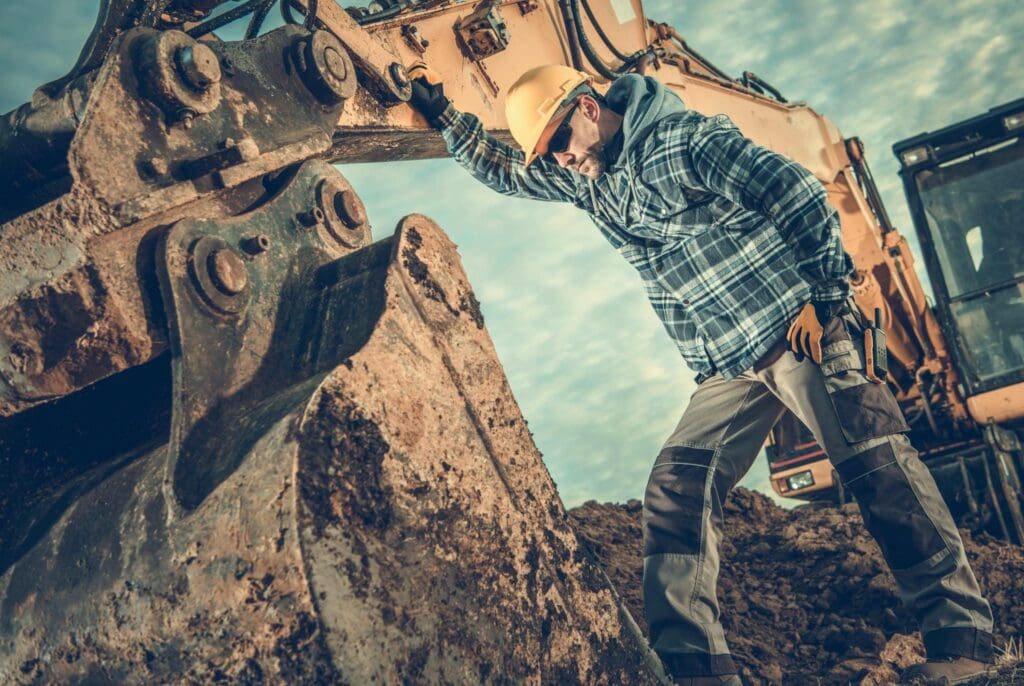If you thought that a career with job security, job flexibility, and good pay didn’t exist, think again. A career as a heavy equipment operator promises just that. Keep reading to learn more about the heavy equipment operation industry and whether it’s the right career choice for you.
What Does a Heavy Equipment Operator Do?
A heavy equipment operator works in the construction industry and controls heavy machinery that a.) transports materials and b.) builds various types of infrastructure—including roads, bridges, and buildings. Some types of machinery that heavy equipment operators use include cranes, bulldozers, and forklifts.
Heavy equipment operators work for either government entities or private employers. Each option comes with its advantages and disadvantages. Choosing between the two depends on factors such as job type, hours, and desired pay, benefits, and work environment.
Heavy Equipment Operator Job Outlook
A career in heavy equipment operation is often overlooked and highly underrated. Here’s why.
Salary
Jobs operating heavy machinery and construction equipment offer competitive salaries. The average industry salary in November 2021 was $67,261, and the general salary range is $56,256 to $76,312. Factors that determine an individual’s salary include job location, experience level, education, certifications, skills, and what specific equipment a worker will operate.
Industry Growth
The Bureau of Labor Statistics predicts that the heavy equipment operation industry will experience a 5% growth between 2020 and 2030. An average of 51,500 new heavy equipment operator jobs are created every year. As the U.S. economy continues to bounce back from the pandemic slow down, even more jobs will become available.
Because construction happens throughout this country, heavy equipment operators are in high demand just about everywhere. Their work is vital to create and maintain various forms of infrastructure. This simple fact promises both job security and job flexibility for heavy equipment operators.
Why You Should Choose a Career in Heavy Equipment Operation
Benefits of Heavy Equipment Career?
Pursue Education & Training
To enjoy a successful career as a heavy equipment operator, you’ll need to undergo some education and training first. The good news is that you have options. Check them out below:
- Earn your high school diploma: The first step you need to take is earning your high school diploma or a GED. You won’t land a job as a heavy equipment operator without one of the two.
- Attend a vocational school: If you want to learn about heavy equipment operation in a classroom setting, consider attending a vocational school. This option will allow you to learn about the industry and know what to expect before stepping onto a job site.
- Complete an apprenticeship: You get the best of both worlds with an apprenticeship. Yo’ll learn about heavy equipment operation in an educational setting while also gaining hands-on experience.
- Obtain your CDL: A CDL (Commercial Driver’s License) isn’t generally required to operate heavy machinery on construction sites, but it can increase both job prospects and salary. If you have the time to do so, obtaining a CDL will be beneficial.
- Gain hands-on training: No form of education or certification can beat getting hands-on training. You can’t learn in the classroom what you learn on the job; it’s invaluable. Whether it’s before you start your career as a heavy equipment operator or once you’re already working in the role, gain as much hands-on training as possible. The more you know and the more equipment you know how to operate, the more successful you will be.



Gain Necessary Skills
While job descriptions can differ slightly in the skills required and desired, every employer looks for this set of skills when hiring a heavy equipment operator:
- Detail-oriented
- Critical thinker
- Problem-solver
- Mechanically minded
- Physical stamina
- Analytical
- Communicative
- Collaborative
- Learner
- Hand-eye coordination
Keep Safety in Mind
Following proper safety protocols prevents unnecessary worksite injuries and fatalities. Here are some steps to take that will keep yourself and those around you safe while on the job:
- Pay attention to your surroundings.
- Know the load capacity of the equipment you’re operating.
- Know how to operate the controls.
- Always wear a seat belt while operating heavy machinery.
- Perform regular equipment inspections.
- Wear PPE (Personal Protective Equipment), such as gloves, a hard hat, and goggles or safety glasses.
Know the Benefits
While a career in heavy equipment operation comes with long and sometimes odd hours, it has many more benefits. Keep reading to learn about the main benefits of working as a heavy equipment operator:
- Flexible hours
- High job demand
- Hands-on training
- Insurance coverage
- Career growth
- Diverse job opportunities
- Competitive pay
- Job satisfaction
Heavy Equipment School Locations
Try the Heavy Equipment Programs at HEC
The diverse collection of accelerated training programs and career services at Heavy Equipment Colleges of American (HEC) prepares students for careers as heavy equipment operators. Whether you’re searching for your first job or want to make a career change, HEC is here to help you succeed. Enroll today to get trained in as little as three weeks and be one step closer to achieving your career goals.

